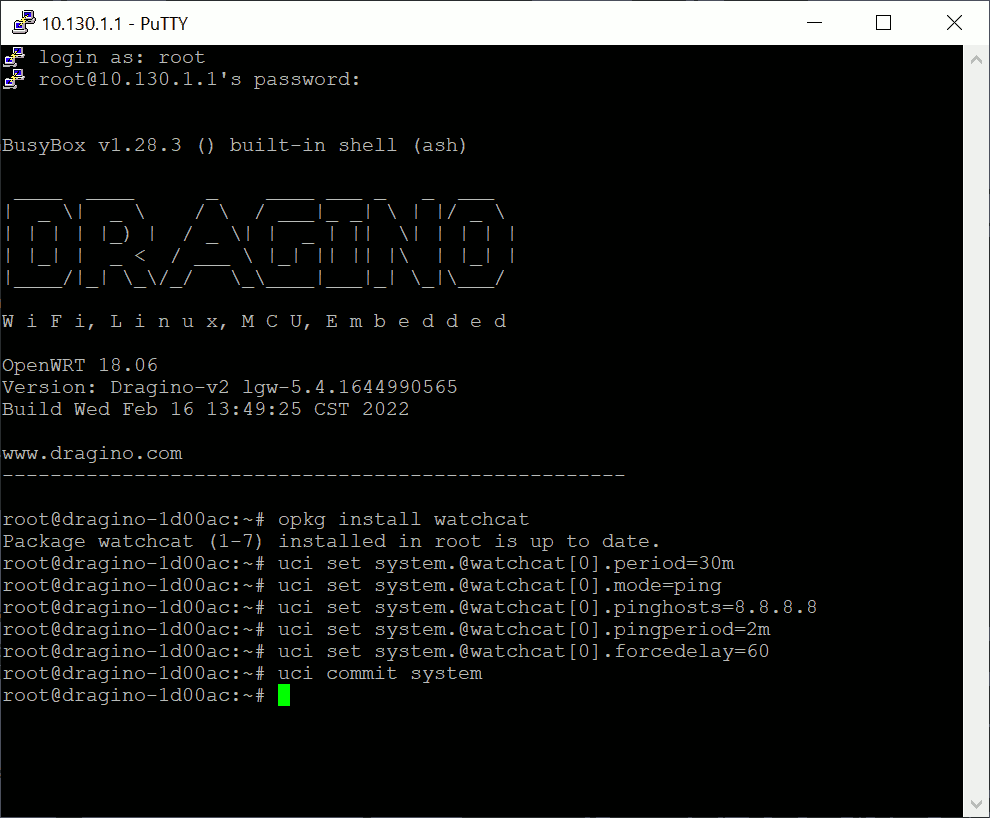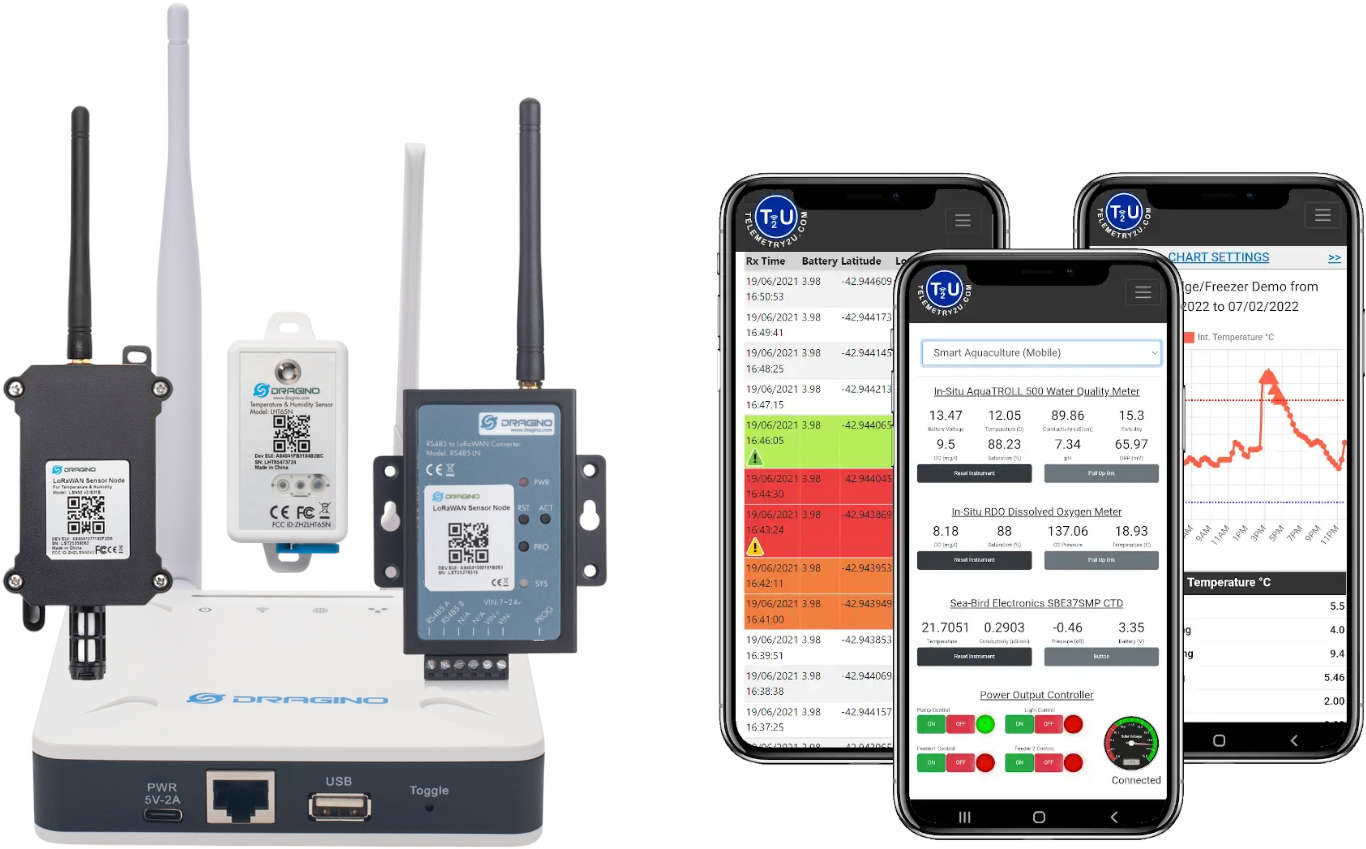How to Automatically Reboot a LoRaWAN Gateway When the Internet Connection is Lost
Learn how to install and configure Watchcat on your LoRaWAN gateway to automatically reboot when the Internet drops—helping you maintain reliable, uninterrupted connectivity with Telemetry2U.
How to Set Up Auto-Reboot on Your LoRaWAN Gateway
If your LoRaWAN gateway loses Internet connectivity, an automatic reboot can help restore service without manual intervention. This guide explains how to use Watchcat—a lightweight watchdog utility—to monitor the connection and trigger a reboot when needed, helping ensure continuous communication with the Telemetry2U platform.
Before You Begin
Before starting, ensure your gateway is running the latest firmware and is connected to the Internet via Wi-Fi or Ethernet.
Accessing Your Gateway via SSH
To configure the auto-reboot functionality, access your gateway via SSH over the LAN port. If you don't already have an SSH client installed, we recommend using PuTTY. The default Dragino SSH login details are:
- Address: 10.130.1.1 (unless it has been changed)
- Port: 2222 (try port 22 if 2222 doesn’t work)
- Username: root
- Password: dragino
Updating the Package Manager
Run the following command to update the opkg package manager:
opkg update
Installing Watchcat
Install the Watchcat package using this command:
opkg install watchcat
Configuring Watchcat
Configure Watchcat to ping Google’s DNS server (8.8.8.8) every 2 minutes, and reboot the gateway if no response is received within 30 minutes. Enter the following commands:
uci set system.@watchcat[0].period=30muci set system.@watchcat[0].mode=pinguci set system.@watchcat[0].pinghosts=8.8.8.8uci set system.@watchcat[0].pingperiod=2muci set system.@watchcat[0].forcedelay=60uci commit system
Rebooting to Start Watchcat
Reboot the gateway to apply the changes and start the Watchcat service:
reboot

Verifying Watchcat is Running
After the gateway has rebooted, log in again and run the following command to confirm that Watchcat is running:
ps | grep "[w]atchcat"
Understanding the Output
If Watchcat is running, you’ll see an output similar to this:
1590 root 1200 S /bin/sh /usr/bin/watchcat.sh period 1800 60 8.8.8.8 120
In this output:
- 1800 = 30-minute delay before reboot (in seconds)
- 120 = Delay between ping attempts (in seconds)
- 60 = Grace period before performing a forced reboot
